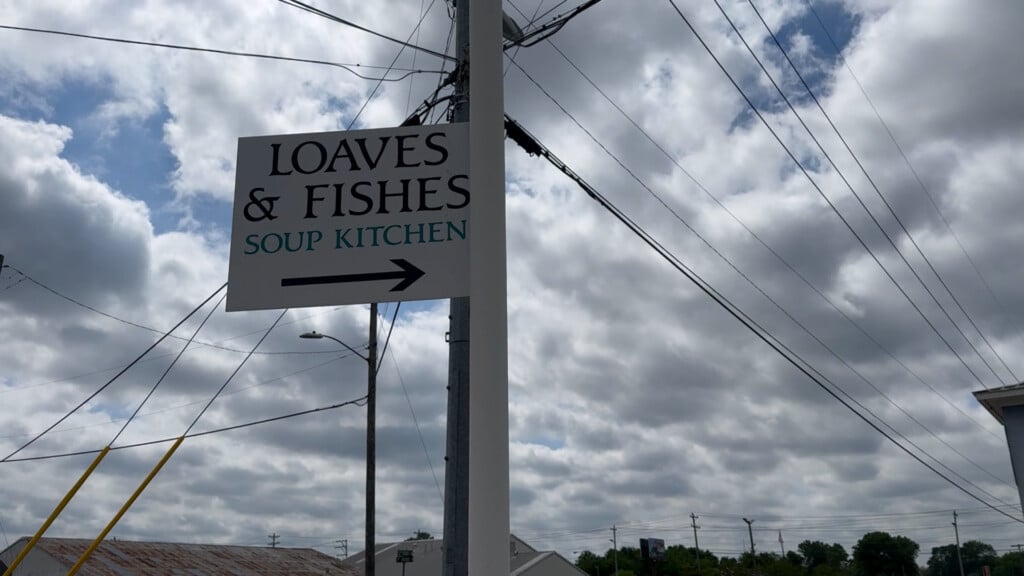Universities lobby Mississippi lawmakers with tickets, meals
JACKSON, Miss. (AP) – When Ole Miss played in the 2016 Sugar Bowl, more than a dozen Mississippi public officials were in the stands, free of charge, to watch the Rebels crush Oklahoma State.
Lobbyists doled out nearly $13,000 in free tickets for lawmakers and other state officials that day. The lobbyists weren’t working for a large corporation or a private industry group, but for the University of Mississippi
Ole Miss is not alone in its largesse to public officials. Seven of Mississippi’s eight public universities and their private foundations spent nearly $2 million on lobbying over the past four years, a Clarion Ledger analysis found. That amount includes spending for staff lobbyists and private lobbying firms, plus entertaining lawmakers. Mississippi Valley State did not file lobbying reports.
The analysis found:
– Universities provided more than $276,000 combined in gifts to officials over four years. Including receptions, the total is nearly $350,000.
– Nearly 40 officials received $2,000 or more in gifts and services. The top five lawmakers received between $6,600 and $8,500 apiece.
– Gifts to lawmakers included Ruth’s Chris Steak House meals at $174 per plate, sports memorabilia worth $376 and single-game ticket packages valued at $1,500.
– Despite these lobbying efforts, university funding has dropped 12 percent since 2016.
Public universities lavish money on public officials in hopes of getting more public dollars. And they spend more than most other groups seeking influence in the Capitol. Last year, the state’s three largest universities showered officials with $58,000 in freebies – about three times more than Mississippi Power, Entergy and electric cooperative lobbyists, combined.
In Mississippi it’s legal. The state’s lack of restrictions on gifts means elected officials, their families and friends can benefit from unlimited freebies without worry.
Campus officials said they are more likely to invite chairmen of key committees to games or meals to explain a particular higher education issue, or to seek funding for specific projects. Many of reported expenditures reflect this.
Republican Sen. Terry Burton of Newton, the former second-in-command in the Senate, received the most gifts of any official, valued at more than $8,500.
Most of the top recipients among legislators serve on higher education and budget-writing committees.
Statewide elected officials get perks, too. Over the past four years, Treasurer Lynn Fitch received about $3,300 in giveaways, Lt. Gov. Tate Reeves more than $2,300, and Secretary of State Delbert Hosemann about $2,100. Gov. Phil Bryant received less than $1,000.
Staffers also cash in on free tickets and meals. Chiefs of staff for the governor, lieutenant governor and House speaker got more than $1,600 in handouts combined since 2015.
Lawmakers can request tickets. And if a lobbyist knows the official will want to attend several games, they sometimes offer a season pass.
“If a lawmaker requests tickets, I will do everything I can to accommodate them,” said Perry Sansing, Ole Miss’ staff government affairs liaison.
Mark Davies, a Fordham University law professor and ethics expert, said this arrangement is problematic. “Any good ethics law,” he said, “would absolutely prohibit any request for any gift, regardless of size, because that would constitute a misuse of office for private gain.”
In some states – including Florida, Louisiana and Tennessee – it’s illegal for lobbyists to give any gifts to public officials. But Mississippi places no limits on gift-giving.
“The public perception of an official receiving a gift is horrible and undermines both the reality and the perception of integrity in government,” Davies said.
Despite spending on lawmakers, state universities don’t appear to fare much better than other agencies at budget time. Total state appropriations for universities increased slightly in fiscal 2016, to $344 million, but since plummeted 12 percent, to about $302 million last year.
Universities have blamed anemic state funding for tuition increases – including an average 4-percent increase this year for attending the state’s eight public universities.
House Ways and Means Committee Chairman Jeff Smith, a Columbus Republican, said universities compete for special projects, which lawmakers typically fund each year through borrowing. He said some universities “couldn’t function” without lobbyists.
“The squeaky wheel gets the grease,” Smith said. “If Southern Miss didn’t have (private lobbying firm) Capitol Resources, I’m not sure what they would do…. I don’t know that they would have gotten their nursing school built a few years ago if it weren’t for Capitol Resources.”
School officials say most lobbying expenses are covered by private funds from foundations and alumni associations. Yet, some public funds are also spent, the Clarion Ledger found.
“We think it’s a bad idea for universities to engage in lobbying elected officials, and using tickets to sporting events, parking passes, or meals,” said Jon Pritchett, CEO of the Mississippi Center for Public Policy, a conservative group. “Despite efforts by universities to segregate sources of money, it’s too easy for taxpayer dollars to be deployed in the act of lobbying.”
House Speaker Philip Gunn, a Republican from Clinton, said universities activities are “perfectly appropriate.” Gunn received almost $6,000 from the universities since 2015, including a $1,500 Sugar Bowl ticket package and a $50 signed football at the game.
“They have every right to lobby legislators just like every other organization – public, private or other state agency – all of which invite legislators to attend functions,” he said, adding he brings family and friends to games.
Mississippi State University spokesman Sid Salter said there’s value in having lawmakers visit campus.
“I’ve had other reporters ask, ‘Do those discussions really take place in the second quarter of a football game?'” Salter said. “The surprising answer to that is yes . It’s an effective means to have some time with the people who are making those decisions.”
___
Information from: The Clarion Ledger, http://www.clarionledger.com
(Copyright 2019 The Associated Press. All rights reserved. This material may not be published, broadcast, rewritten or redistributed.)





Leave a Reply